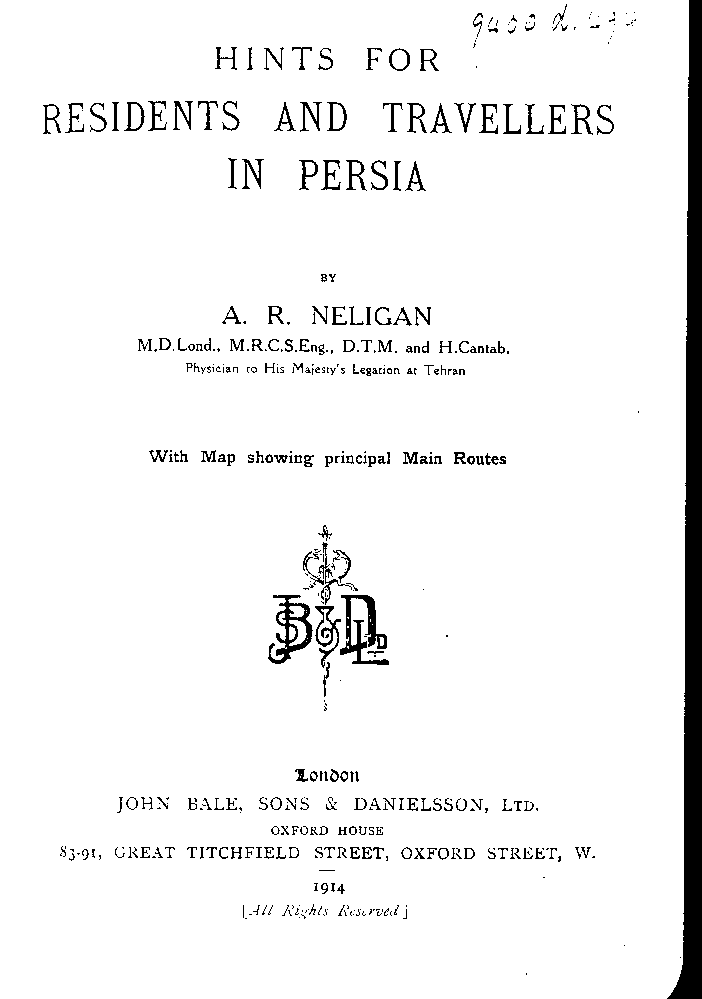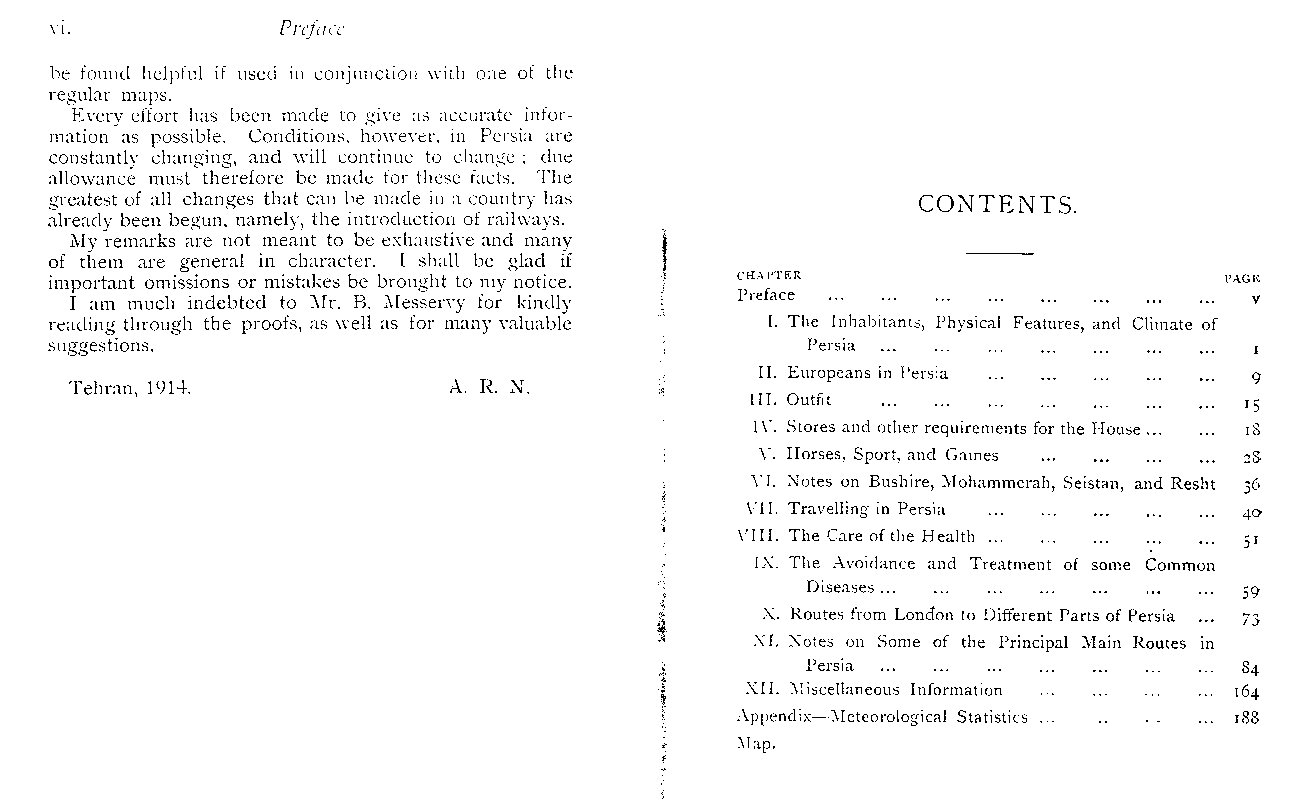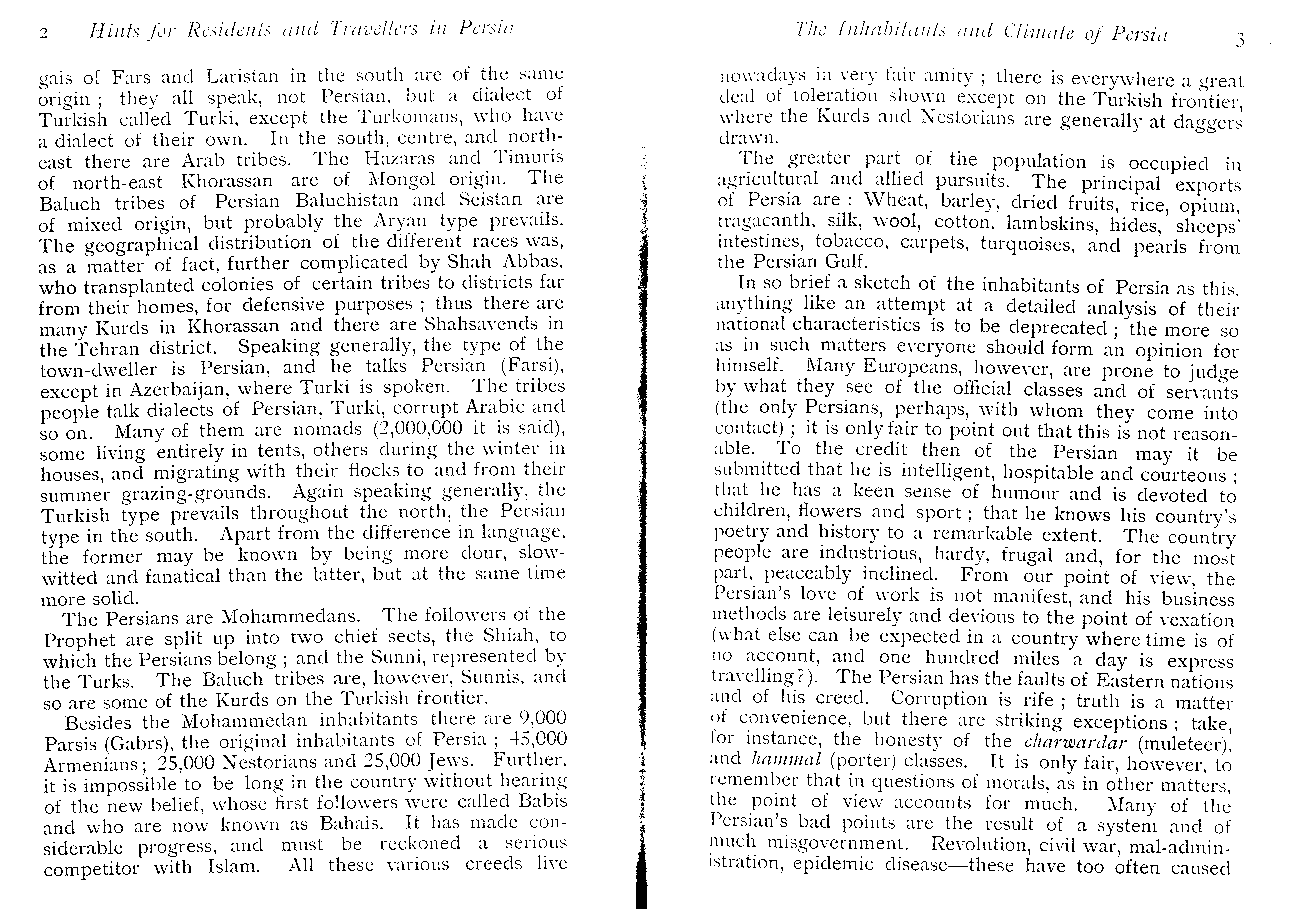
|
|
Abstract: 2-sentence mention of Babis/Bahá'ís. Notes: Author note: Physician to His Majesty's Legation at Tehran |
Hints for Residents and Travellers in Persia
by A. R. Neligan
pages 2-3London: John Bale, Sons & Danielsson, Ltd., 1914
1. Text
[p. 2]... The Persians are Mohammedans. The followers of the Prophet are split up into two chief sects, the Shiah, to which the Persians belong; and the Sunni, represented by the Turks. The Baluch tribes are, however, Sunnis, and so are some of the Kurds on the Turkish frontier.
Besides the Mohammedan inhabitants there are 9,000 Parsis (Gabrs), the original inhabitants of Persia; 45,000 Armenians; 25,000 Nestorians and 25,000 Jews. Further, it is impossible to be long in the country without hearing of the new belief, whose first followers were called Babis and who are now known as Bahais. It has made considerable progress, and must be reckoned a serious competitor with
[p. 3]
Islam. All these various creeds live nowadays in very fair amity; there is everywhere a great deal of toleration shown except on the Turkish frontier where the Kurds and Nestorians are generally at daggers drawn.
The greater part of the population is occupied in agricultural and allied pursuits. The principal exports of Persia are: Wheat, barley, dried fruits, rice, opium, tragacanth, silk, wool, cotton, lambskins, hides, sheep's intestines, tobacco, carpets turquoises, and Pearls from the Persian Gulf.
In so brief a sketch of the inhabitants of Persia as this, anything like an attempt at a detailed analysis of their national characteristics is to be deprecated; the more so as in such matters everyone should form an opinion for himself. Many Europeans, however, are prone to judge by what they see of the official classes and of servants (the only Persians, perhaps, with whom they come into contact); it is only fair to point out that this is not reasonable. To the credit then of the Persian may it be submitted that he is intelligent, hospitable and courteous; that he has a keen sense of humour and is devoted to children, flowers and sport; that he knows his country's poetry and history to a remarkable extent. The country people are industrious, hardy, frugal and, for the most part, peaceably inclined. From our point of view, the Persian's love of work is not manifest, and his business methods are leisurely and devious to the point of vexation (what else can be expected in a country where tine is of no account, and one hundred miles a day is express travelling?). The Persian has the faults of Eastern nations and of his creed. Corruption is rife; truth is a matter of convenience, but there are striking exceptions; take, for instance, the honesty of the charwardar (muleteer), and hammal (porter) classes. It is only fair, however, to remember that in questions of morals, as in other matters, the point of view accounts for much. Many of the Persian's bad points are the result of a system and of much misgovernment. Revolution, civil war, mal-administration, epidemic disease ...
2. Image scans (click image for full-size version)

|
|

